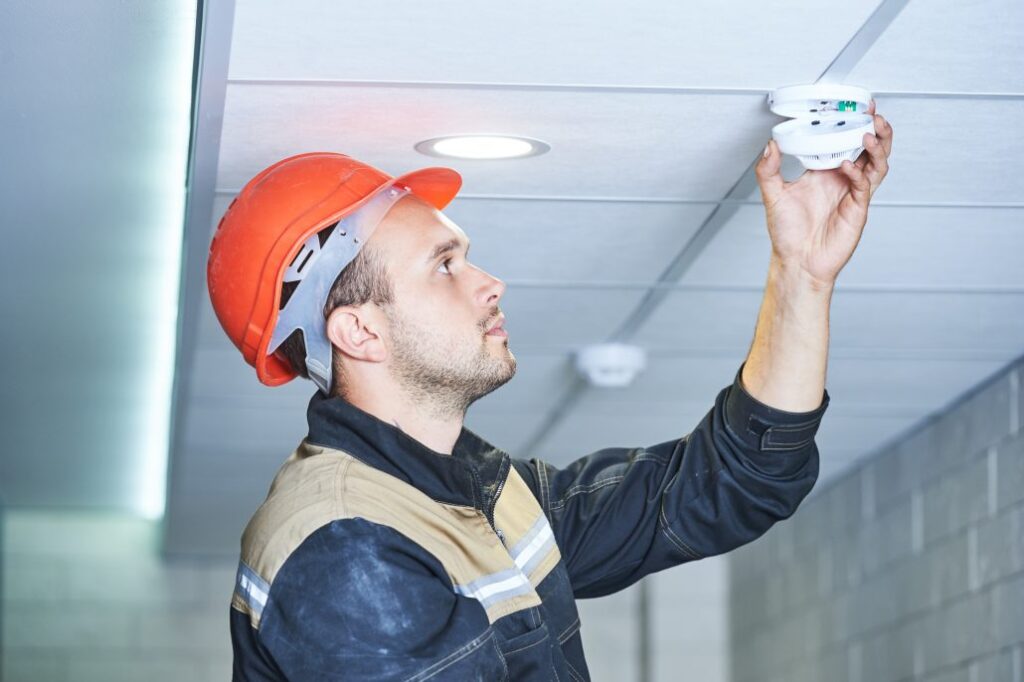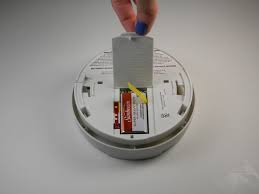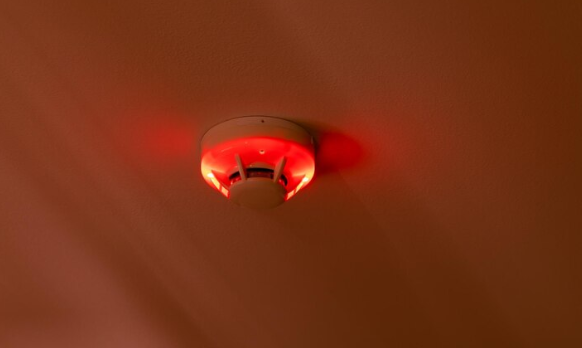Why did my fire alarm randomly go off then stop?:Fire alarms serve as crucial safety devices, designed to alert us to potential danger and save lives. However, experiencing a fire alarm going off unexpectedly, only to stop shortly afterward, can be puzzling and concerning. In this blog post, we’ll delve into the common reasons behind this occurrence and what you should do when faced with such a situation.
Understanding False Alarms
What Constitutes a False Alarm?
False alarms are instances where a fire alarm activates without the presence of an actual fire or smoke. These can be triggered by various factors, including:
- Environmental Factors:
- Steam from hot showers or cooking.
- Excessive dust or aerosols in the air.
- Sudden changes in temperature or humidity.
- Malfunctioning Equipment:
- Faulty sensors or wiring.
- Low battery voltage.
- Aging components.
Environmental Factors:
Environmental factors play a significant role in triggering false alarms in fire alarm systems. Understanding these factors is crucial for distinguishing between actual emergencies and non-threatening situations. Let’s delve into three common environmental factors in detail:
Steam from Hot Showers or Cooking:
Steam generated from hot showers or cooking activities can trigger fire alarms, especially if the steam reaches the alarm sensors. When steam particles interact with the sensors, they may be mistaken for smoke particles, leading to false alarms. This phenomenon is particularly common in areas where fire alarms are installed near bathrooms or kitchens.
To mitigate the risk of false alarms caused by steam:
- Consider installing extractor fans or ventilation systems to remove steam from enclosed spaces.
- Position fire alarms away from areas prone to steam, such as directly outside bathrooms or above stovetops.
- Opt for fire alarm models equipped with advanced sensors designed to differentiate between steam and smoke particles.
Excessive Dust or Aerosols in the Air:
Accumulation of dust, aerosols, or other airborne particles can interfere with fire alarm sensors, resulting in false alarms. Dust particles can trigger alarm sensors by blocking or obscuring the detection mechanism, leading the system to interpret this obstruction as smoke. Moreover, aerosols present in the air, such as those released from spray cans or aerosolized cleaning products, can also trigger false alarms.
To reduce the likelihood of false alarms due to airborne particles:
- Regularly clean fire alarm sensors and surrounding areas to remove dust buildup.
- Minimize the use of aerosol sprays or ensure adequate ventilation when using such products.
- Consider installing dust covers or protective enclosures for fire alarm sensors in environments prone to dust accumulation, such as construction sites or industrial facilities.
Sudden Changes in Temperature or Humidity:

Fire alarm systems are sensitive to fluctuations in temperature and humidity, which can inadvertently trigger false alarms. Rapid changes in temperature or humidity levels within the environment can disrupt the functioning of alarm sensors, leading to erroneous activations. For example, a sudden increase in humidity due to environmental factors like rain or fog may cause condensation to form on the sensor surfaces, potentially mimicking the presence of smoke.
To address false alarms caused by fluctuations in temperature or humidity:
- Maintain stable environmental conditions within the premises by regulating heating, ventilation, and air conditioning systems.
- Install fire alarm sensors in areas with consistent temperature and humidity levels, avoiding locations prone to rapid fluctuations.
- Implement temperature and humidity monitoring systems to detect and address environmental changes that could affect fire alarm performance.
Malfunctioning Equipment:
In addition to environmental factors, malfunctioning equipment can also contribute to false alarms in fire alarm systems. Components such as sensors, wiring, and batteries play crucial roles in detecting and signaling the presence of smoke or fire. Here’s a closer look at common issues related to malfunctioning equipment:
Faulty Sensors or Wiring:
Fire alarm sensors are designed to detect the presence of smoke or heat and trigger the alarm system accordingly. However, sensors can become faulty over time due to wear and tear, exposure to environmental elements, or manufacturing defects. Similarly, faulty wiring connections can disrupt the communication between sensors and the central control panel, leading to inconsistent or erroneous alarm signals.
To address issues related to faulty sensors or wiring:
- Conduct regular inspections of fire alarm components to identify signs of wear, corrosion, or damage.
- Test individual sensors and wiring connections using appropriate diagnostic tools to ensure proper functionality.
- Replace defective sensors or repair damaged wiring promptly to prevent false alarms and maintain system integrity.
Low Battery Voltage:

Fire alarm systems often rely on battery power to ensure continuous operation, especially during power outages or when the main power source is compromised. Low battery voltage can compromise the effectiveness of fire alarm systems, resulting in false alarms or failure to activate when needed. Batteries may lose their charge over time due to aging, improper maintenance, or inadequate replacement intervals.
To prevent issues associated with low battery voltage:
- Regularly monitor battery voltage levels using the system’s diagnostic interface or battery testing equipment.
- Replace batteries according to the manufacturer’s recommendations or when low battery warnings are indicated.
- Implement a scheduled battery replacement program to ensure the timely replacement of aging or depleted batteries and maintain system reliability.
Aging Components:

Like any other electronic device, fire alarm systems are subject to aging, which can affect their performance and reliability over time. Components such as sensors, control panels, and communication modules may experience degradation or failure as they age, increasing the risk of false alarms or system malfunctions.
To mitigate the impact of aging components:
- Keep detailed records of the installation date, maintenance history, and lifespan expectancy of fire alarm components.
- Schedule regular inspections and performance tests to assess the condition of aging components and identify potential issues proactively.
- Consider upgrading or replacing outdated components with newer, more advanced models to improve system performance and reliability.
Common Causes of Brief Alarms
Transient Phenomena
Sometimes, fire alarms can go off briefly due to transient phenomena, which are temporary disturbances that trigger the alarm system. Examples include:
- Power Surges:
- Electrical fluctuations can inadvertently activate the alarm before returning to normal.
- Interference:
- Radio frequency interference from nearby electronic devices may trigger false alarms.
- Insects or Pests:
- Presence of insects or pests near the alarm sensors can cause momentary activation.
Reacting to Random Alarms
Immediate Steps to Take
When your fire alarm goes off unexpectedly and then stops, it’s essential to take the following immediate steps:
- Verify Safety:
- Quickly assess your surroundings to ensure there’s no visible smoke or fire.
- Check Alarm System:
- Inspect the fire alarm system for any signs of damage or malfunction.
- Investigate the Cause:
- Identify potential triggers such as steam, dust, or recent activities that might have caused the alarm.
Maintenance and Prevention Tips
To minimize the occurrence of random fire alarms, consider implementing the following maintenance and prevention measures:
- Regular Testing:
- Test your fire alarm system regularly according to manufacturer guidelines to ensure proper functionality.
- Keep Clean:
- Routinely clean the alarm sensors to remove dust and debris that could trigger false alarms.
- Battery Replacement:
- Replace batteries in smoke detectors as recommended by the manufacturer or when low battery alerts occur.
- Professional Inspection:
- Schedule periodic inspections by qualified technicians to detect and address any underlying issues with the alarm system.
Maintenance
Regular testing, cleaning, and maintenance are essential for ensuring the effectiveness and reliability of fire alarm systems. By following manufacturer guidelines and implementing proactive measures, property owners can minimize the risk of false alarms and maximize the safety of occupants. Here are key maintenance and prevention tips to consider:
Regular Testing:

Fire alarm systems should be tested regularly to verify their proper functionality and readiness to respond to emergencies. Follow the manufacturer’s guidelines for testing frequency, which typically recommend testing at least once a month. Testing procedures may involve activating the alarm manually or using the system’s built-in testing features to simulate alarm conditions.
- Ensure all alarm signals are functioning correctly, including audible alarms, visual indicators, and communication devices.
- Document test results and any discrepancies observed during testing for follow-up inspection and troubleshooting.
Keep Clean:
Cleanliness is essential for maintaining the optimal performance of fire alarm sensors and reducing the risk of false alarms caused by dust or debris accumulation. Routinely clean alarm sensors and surrounding areas using non-abrasive materials to remove dust, dirt, and other contaminants.
- Use compressed air or soft brushes to gently remove dust from sensor surfaces and vents.
- Avoid using harsh chemicals or abrasive cleaning agents that could damage sensor components or interfere with detection capabilities.
- Pay special attention to areas prone to dust buildup, such as vents, ducts, and detector openings.
Battery Replacement:

Batteries play a critical role in ensuring uninterrupted power supply to fire alarm systems, especially during emergencies or power outages. To maintain reliable battery operation, follow the manufacturer’s recommendations for battery replacement intervals and procedures.
- Regularly check battery voltage levels and replace batteries promptly if they fall below the recommended threshold.
- Use high-quality, compatible batteries recommended by the manufacturer to ensure optimal performance and longevity.
- Keep spare batteries on hand to facilitate timely replacements and minimize downtime.
Professional Inspection:
Periodic inspections by qualified technicians are essential for identifying and addressing any underlying issues with fire alarm systems that may compromise their effectiveness or reliability. Schedule professional inspections at least once a year or as recommended by the manufacturer.
- Engage certified fire alarm technicians or licensed professionals to perform comprehensive inspections and maintenance procedures.
- Conduct thorough visual inspections of all system components, including detectors, control panels, wiring, and communication devices.
- Address any identified issues or deficiencies promptly to ensure compliance with safety regulations and standards.
Conclusion:
Experiencing a fire alarm going off unexpectedly, only to stop shortly afterward, can be unnerving. However, understanding the common causes behind such occurrences and knowing how to react appropriately is essential for maintaining safety and peace of mind. By following preventive measures and staying vigilant, you can minimize the likelihood of false alarms and ensure your fire alarm system functions reliably when it matters most.
Also Read : Why fire alarm going off at 3pm over night


